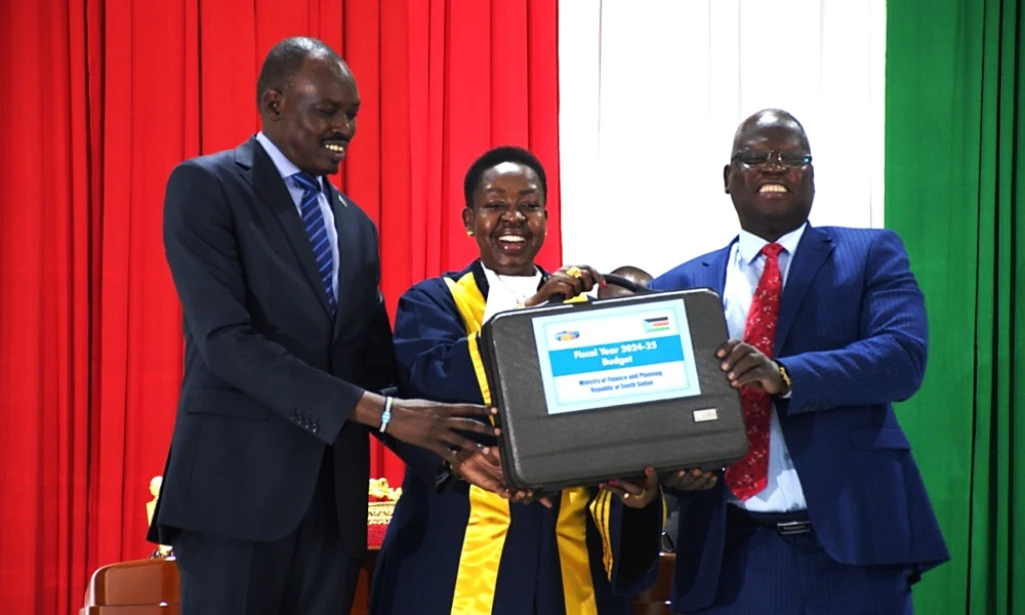
This comes after lawmakers stressed the need for transparency in financing and the importance of resource management.
In August, the cabinet approved the draft budget, totaling 4.2 trillion South Sudanese pounds, and the finance minister presented it to parliament in September.
It projects a deficit of SSP 1,914,581,953,395, representing 46% of the entire budget.
Dr. Marial Dongrin Ater said one of the key strategies to close the current budget deficit is the exclusion of Dar Blend oil revenues from the proposed budget.
“One, we have said that our resource envelope, as regards the oil revenues, has excluded the revenues from the sale of crude from Dar blend, which constitutes 70% of our oil revenues,” Dongrin remarked at a parliamentary sitting in Juba on Tuesday.
“This we did as a government for a strategic reason, that if we had estimated the revenues from Dar blend and included, we would not see the wide physical deficit.”
In September, the government announced the resumption of Dar Blend crude oil exports from Upper Nile State through Sudan to world markets after it halted in February 2024 due to damage to the pipeline.
Dongrin says they made this decision to avoid overestimating revenues in the event that oil production does not resume as soon as anticipated.
“I want to assure the House, and as the government is working very hard to see that it resumes, even if it may happen long after many months of the fiscal year would have been missed, we think that this is going to almost close the deficit that you are seeing,” he reassured.
The current budget projects the total daily oil production at an average of 60,000 bpd from both GPOC and SPOC.
The same oil-producing companies project an average monthly oil production of 1,800,000 bpm (60,000 bpd x 30 days).
Dongrin echoed that the government hopes to close the deficit with external funding.
“The second avenue for bridging this is...looking for external funding through concessional loans,” he stated.
The minister revealed that the government is currently negotiating loans, although the exact amount is not yet known.
However, the loan negotiations will involve multiple steps, including technical assessments, Cabinet approval, and parliamentary approval before any figures can be disclosed.
In addition to loans, the official stressed that the government plans to seek grants through international meetings.
“I had to travel to Washington, D.C., to participate in the 2024 World Bank and IMF Annual Meetings. Meetings are mandatory for members, and they also provide an avenue for member countries to present their issues and seek resources,” the official explained. “So, in that, we also expect loans and grants.”
As the budget deliberation advances to its third reading stage, lawmakers and the public have voiced their concerns about some of the budget’s priorities, which include health, education, youth empowerment, and clearing salary arrears for civil servants.